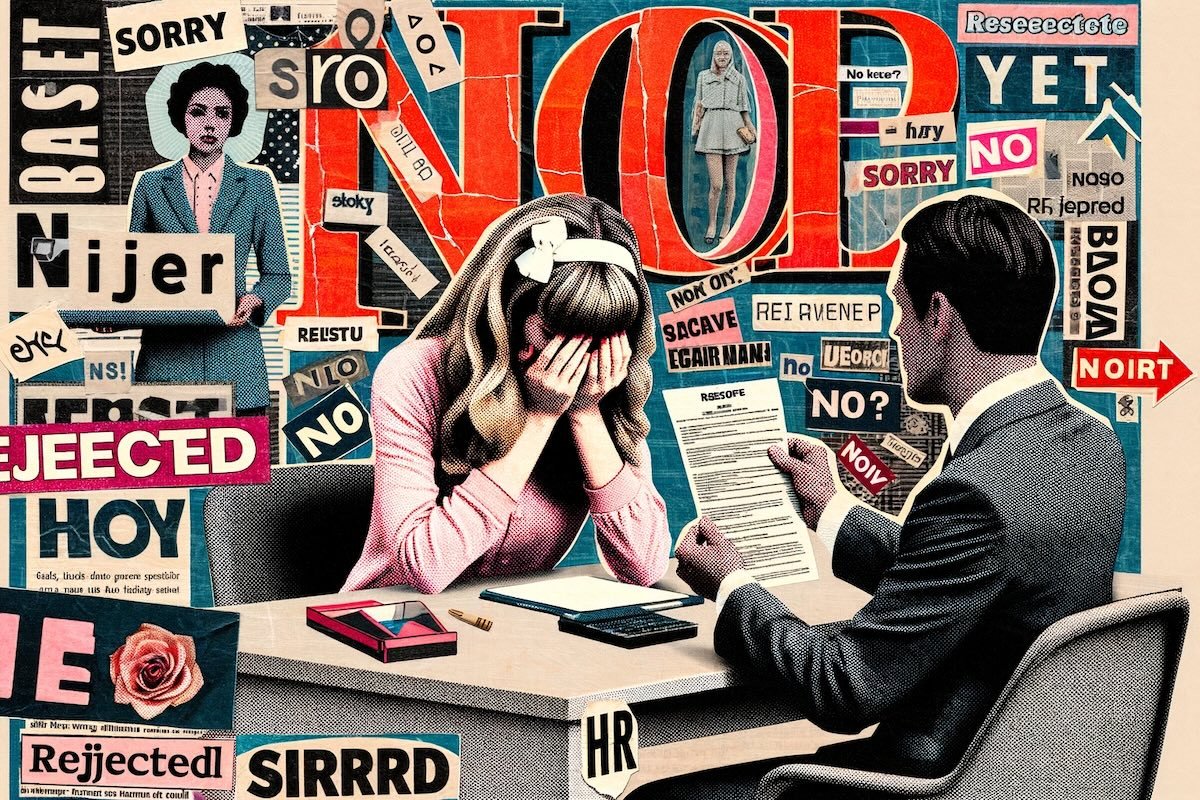So, it’s finally time to quit.
Whether you’ve landed a new job, you’re taking some time off work altogether, or you need to stage a quick departure from a
toxic work environment, you should be penning your
resignation letter right about...now.
We’ve discussed what to include in your resignation before. We even made a
resignation letter template. This article is about what you definitely should edit out, delete, and save for your own inner thoughts.
We'll even share some tips when you need to resign immediately because we know that sometimes you just can't take one more day.
Table of Contents
However, save the juicy gossip and savage one-liners for yourself. Here’s how to write a professional resignation letter and leave with 100 percent of your dignity intact.
- A declaration that you are leaving your job title
- The date of your last day of employment (a.k.a., notice period)
- Gratitude for opportunity
- Your signature or sign-off
1. Don't Include Any Negativity
We’re going to go into specifics, but let’s make a blanket statement here: there is no place for negativity in your resignation letter. Look at this particular letter as a formal handling of your dissolution of employment.
- Do include details like whether you intend to give two weeks’ notice if you’re willing to stick around to train your replacement or whether you’ll be leaving effective immediately.
- Don’t go into why you hate your job, how you’re so happy you’re leaving, and how you hope they have a terrible fiscal year without you.
Rule 1 of your resignation letter is this: it’s an informative letter—and that’s all.
2. Don't Include Reasons You Hated Your Job
You might think you’re helping out the next person by chronicling the various offenses committed against you in your resignation letter. You might view your resignation letter as the place to right some wrongs and improve your position for your successor.
If you have real grievances that cannot be ignored, you can get serious about it. Seek out
an exit interview with Human Resources or your manager and voice your concerns. If your manager is the source of your concerns, consider asking for another senior-level employee to conduct or preside over your exit interview.
If the reasons you hated your job were things like, “Jerry chewed too loudly,” or “Veronica always microwaved fish at lunch,” just let them go. Although, it has to be said, microwaving fish is pretty unprofessional in our books.
3. Don't List Reasons You Hated Your Boss or Coworkers
Just like using your resignation letter to list out reasons you hated your job, it’s also not the place to launch attacks on individuals. And who knows? You might end up
needing a reference from these very people in the future.
Quit your job with grace towards your former boss and coworkers—just in case.
Our advice does remain the same, though. If a coworker, manager, or senior executive is engaging in unprofessional or abusive behavior, tackle that with Human Resources at your exit interview or consider reaching out to the
Equal Employment Opportunity Commission (EEOC.)
4. Don't Reveal Secrets or Details About Other Coworkers
So, we know that Joanne from accounting is your worst enemy—and we know you think she might mess with the numbers sometimes. We know that Bob from Corporate got really drunk at the holiday party—and you're pretty sure he was the one who poured the champagne in the copier.
Your resignation letter is not the place to call out every wrongdoing or misdeed of your soon-to-be-former coworkers.
5. Don't Share Detailed Information About Your New Job
Your new job is awesome and you’re so proud you got it. You may have great benefits,
a better salary, and a bright future. Your soon-to-be-ex employer doesn’t need to be privy to any of these details.
Don’t use your letter of resignation as a place to make your old job jealous.
First of all, it won’t work. Second of all, you might get yourself into some hairy situations by disclosing the terms of your new agreement. Not to be too paranoid, but if you’re leaving
a super toxic environment, you never know what former management could do to mess your new opportunity up for you.
Keep quiet about your next opportunity for this one reason: it’s nobody’s business but yours.
That being said, congratulations!
6. Don't Add Any Inappropriate or Threatening Language
This means none of those four-letter words, no name-calling, and no declarations that the company will “rue the day” they let you go. This letter is likely to go into an employment file that could follow you through a career.
Michelle Obama was right about always going high, so take her word for it.
Also, we have all seen emails go viral. Don’t go viral. You also don't want to spend your two-week transition period knowing that you called your boss a few choice words. Allow yourself a smooth transition by keeping to yourself.
7. Finally, Don't Insert That Final “Eff You”
You know that scene from Half Baked where Scarface quits his job?
Or, in real-life, remember the JetBlue employee who quit by deploying the emergency exit slide? While many of us fantasize about going out like that,
it does you a disservice.
Instead of having that final “eff you” moment, here’s a word of advice from your mom here at Career Contessa. Leave with all of your dignity intact. Make it so that no person could have a negative thing to say about you. Throughout your entire resignation process, be professional. Hey, you never know if you might like a recommendation in the future.
Now that you know all the things to not include in a formal resignation letter and reviewed our
resignation letter templates, let's discuss when you can't take one more day at work. We're talking about the effective immediately resignation letter.
The most professional way to quit a job is by giving your
two weeks' notice and to aid in the transition of your role. However, personal circumstances can intervene well-laid plans and that might require you to leave without any notice or at least a very short notice.
If possible, try to provide your employer with an explanation for your immediate resignation in your letter. This does not mean you need to divulge all your personal details. You can summarize your reasons as "personal" or "family circumstances" in your resignation letter and, if you're comfortable, give more context in your conversation with your employer.
Sudden resignations can be very disruptive for companies. In order to leave on good terms, you can offer to help with any questions that come up after you leave, but if you know your personal life won't allow for that, skip the offer. It's better not to promise anything you can't keep.
And even if you're leaving because of a conflict with a boss or coworker, we recommend not mentioning that in your immediate resignation letter either. If you're leaving because of more serious reasons, like
harassment from a supervisor, be sure to look up the correct ways to document and report that.
Here's what you'll want to include in your immediate-effect resignation letter:
- Formal notifcation of your resignation with your last day of work and the current date in a hard copy letter
- Express gratitude for the opportunity
- Next steps and contact information (i.e., if you will allow them to contact you)
How to Handle an Immediate Resignation
It can be nerve-wracking to walk into your employer's office and tell them you're quitting...today. Naturally, your employer is going to ask lots of questions.
Remember, you don't have to provide any information you're not comfortable sharing. When you're not able to give notice, there are a few things you'll want to review before that meeting.
Review Your Employee Agreement
Before you make any resignation moves, check the terms of your employment agreement or employment contract if you have one. Most people are
"at-will" employees, but it depends on the state that you work in. This means you can resign or terminate your contract without giving notice or a reason.
If you're not sure, check with your HR department to see if there are any requirements before giving notice.
Resign With a Written Letter + Email a Copy to Them
You'll want to make sure there is a record of your resignation. We've provided a few templates when you need to resign immediately below—one template shares that you're leaving for personal reasons and one is just notifying your employer you're leaving.
In addition to writing a professional letter, email a copy of your letter to your boss and save it in your digital folders.
Having a paper trail of when and how you resigned never hurts.
Follow-up a Written Letter With a Verbal Resignation
Perhaps you are giving your written letter at the same time you're meeting in person with your boss, but, if not, it helps your professional reputation to explain your resignation verbally to your manager.
Breaking the news of your resignation over the phone, via online meeting, or in-person can help soften the shock of your leaving.
Sample Resignation Letter Effective Immediately
Here's what you can write when you need to resign immediately.
Immediate Resignation Letter for Personal Reasons
October 3, 2021
[NAME]
XYZ Company
1234 Memory Ln,
Cityville, CO 33333
Dear [Name],
Please accept this letter as my formal resignation from my role as [Position] effective immediately as of [Date]. I regret to inform you I need to resign due to personal reasons. I know this is an unexpected inconvenience and I'd be happy to help with any transition up until [Date]. Please feel free to contact me on my cell (xxx-xxx-xxxx) or by email at xxxxxx@gmail.com.
I want to express my gratitude for the knowledge I’ve gained and the skills I have been able to develop in this role.
It would not have been possible without your mentorship and my great team members. I am thankful for the time I have spent working with every colleague and the opportunity to develop great professional relationships here. I look forward to staying in touch, and I hope that we can collaborate again in the future.
This was not an easy decision and I thank you so much for your understanding in this matter. I have loved my current job, and I will look back on my time here with wonderful memories.
Best regards,
[Signature]
Immediate Resignation Letter With No Reason Example
October 3, 2021
[NAME]
XYZ Company
1234 Memory Ln,
Cityville, CO 33333
Dear [Name],
Please accept this letter as my formal resignation from [Company] as [Job Title] effective immediately.
While my contract request I give two-weeks notice, I appreciate your understanding of my ending work immediately. I will assume this is satisfactory unless otherwise noted.
Thank you so much for your understanding in this matter. I have loved my job, and I will look back on my time here with wonderful memories.
Best regards,
[Signature]












